Faculty Spotlight: Professor Amanda Lewis
Dr. Lewis’ research focuses on how race shapes educational opportunities and how our ideas about race get negotiated in everyday life. She is the author of Race in the Schoolyard: Negotiating the Color-line in Classrooms and Communities (2003). She is also the co-editor (with Maria Krysan) of The Changing Terrain of Race and Ethnicity (2004), and co-author (with Mark Chesler and Jim Crowfoot) of Challenging Racism in Higher Education: Promoting Justice (2005). Her research has appeared in a number of academic venues including Sociological Theory, American Educational Research Journal, American Behavioral Scientist, Race and Society, DuBois Review and Anthropology and Education Quarterly. She also published (with John Diamond) Despite the Best Intentions: Why racial inequality persists in good schools (Oxford, 2015). This interview was conducted by Nicole NeSmith in September 2016.
Image of Prof. Amanda Lewis Heading link
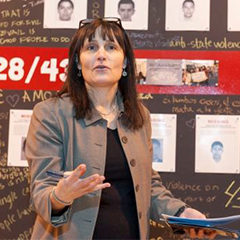
“Teaching seemed to link up with my values, with what I wanted to do in the world.”
| Professor of Black Studies and Sociology, Director of the Institute for Research on Race and Public Policy
Part One of Interview with Amanda Lewis Heading link
Could you discuss your undergraduate experience?
Amanda Lewis: I had a meandering journey in my college career. I went in thinking I would be a high school chemistry teacher and so started out as a chemistry major. But then I discovered I really liked physical chemistry instead of organic chemistry. So I got more and more interested in the teaching part of it. The institution I went to at the time had a pretty open curriculum. So there were lots of opportunities to create an individualized major of sorts. So I majored in Educational Studies and ended up taking a lot of interdisciplinary classes in African American Studies and Urban Studies and various social sciences and so that what was I did academically. Socially I played softball my freshman year. I was going to school on the east coast though, so it was cold, and it was like 7 hours a day of practice during the season and I was not going to college to play sports so I eventually stopped doing that and got involved in a lot of campus activism. At the time we were organizing to press the university to have need-blind admissions (so they wouldn’t consider someone’s financial situation for admissions). I also worked with other students to organize some events on campus about urban education and equity…
Did the plan for need-blind admissions work out?
Lewis: Eventually. About a year after I left, the university committed to raising money to become need-blind…
Were you involved in activism in high school or was it a college experience?
Lewis: In high school I gained a lot of the foundation of asking certain critical questions, but yeah it was definitely in college. There weren’t any organizations in high school…the place I was in, there were only very narrow extra-curricular organizations. It wasn’t until I got to college that I was around a much more politically active set of folks.
What made you interested in studying Urban Policy and African American Studies?
Lewis: Most of it came out of concrete experiences. My sophomore year of college I did something called the Urban Education Semester where I went to New York City and studied at Bank Street, which is a graduate school of education, and I student taught at schools in East Harlem. These were really good urban schools and I could see that there was a lot of potential for doing amazing things. But it was also clear what some of the structural and economic challenges were… these are very stressed communities so just thinking about the juxtapositions in opportunities is something I became more interested in. When I first went to graduate school I was going to get a Master’s in education and a teaching certificate but a lot of the questions I was asking weren’t getting answered. I was interested in teaching in urban schools, I was connected to activism and the idea of providing a wider range of kids the kinds of educational experiences that I had had, that I thought were really powerful. And then I ended up teaching in a number of schools that I thought weren’t as good. This was in the early 90s when there were lots conversations going on about school reform. I felt that the national conversation about schools was really narrow and not at all focused on equity or the things that matter to me. That was one kind of push for me to get a PhD. I disagreed with the thought leaders of the time, and I needed credentials to get taken seriously. The other things that happened was some of the experiences I had when I was student teaching raised questions I wanted to pursue. It was clear how much race mattered in influencing peoples’ experience in access to education both in a macro level with segregation of schooling and also in micro ways with how racial dynamics shaped expectations for kids. I kept getting pushed by people in the teacher education program I was in to focus more on my math lesson plans and less on these big questions I was asking. I thought there was no way to think about teaching or what I was doing in classrooms without thinking about those bigger questions. And when I went to do some reading about those things, I found there weren’t good answers readily available. I had to kind of dig. So that was another pull into graduate school. So I got my masters and my teachers certificate and then went on to get a PhD.
Part Two of Interview Heading link
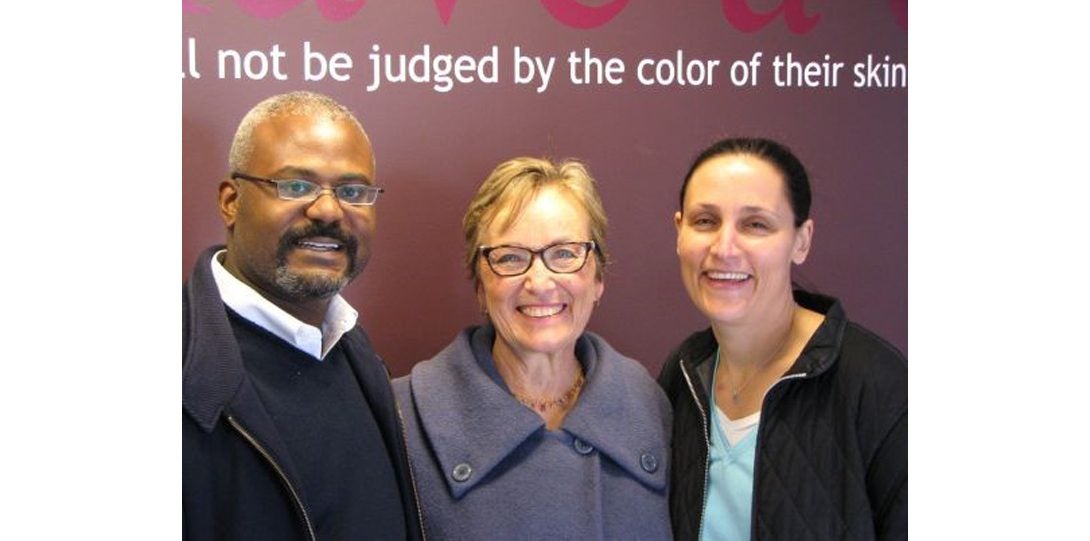
Would your younger self have imagined this career path?
Lewis: I think when I was young I didn’t have enough of a sense of what the different options were. I had been thinking about being a teacher since I was little. Even when I went to get a PhD it was because I wanted to understand something. It wasn’t like “oh I’m going get a PhD and become a professor somewhere and here’s what the next 30 years of my life will look like.” None of that was clear to me at the time. I was just making the next move. For undergraduates, many think “oh if I’m not getting a degree in engineering then I’m not getting enough career preparation.” I think what people get out of an undergraduate degree are the capacity to think critically, to write well. There are some big ideas and some skills, and then the career stuff is a parallel process that we don’t do a lot with.
I’ll get students who say they want to be a teacher, or a social worker, etc., who only have a narrow sense of possibilities. But there are a lot of interesting jobs out there that just require some research.
As an adult you meet people all the time who are doing interesting things. I had a conversation with a friend’s daughter recently who told me she was interested in marketing and I said, “What do you mean by marketing? What are you interested in?” And we just had a long conversation about it. We ended up talking about 8 different kinds of jobs. So in some ways I’m not saying people shouldn’t focus on career paths, just that they need to do some research.
There really is a world of possibility out there, but it does require some imagination and some work. It is true that hiring does happen through social networks, so they need to do some extra things to get there.
Part Three of Interview Heading link
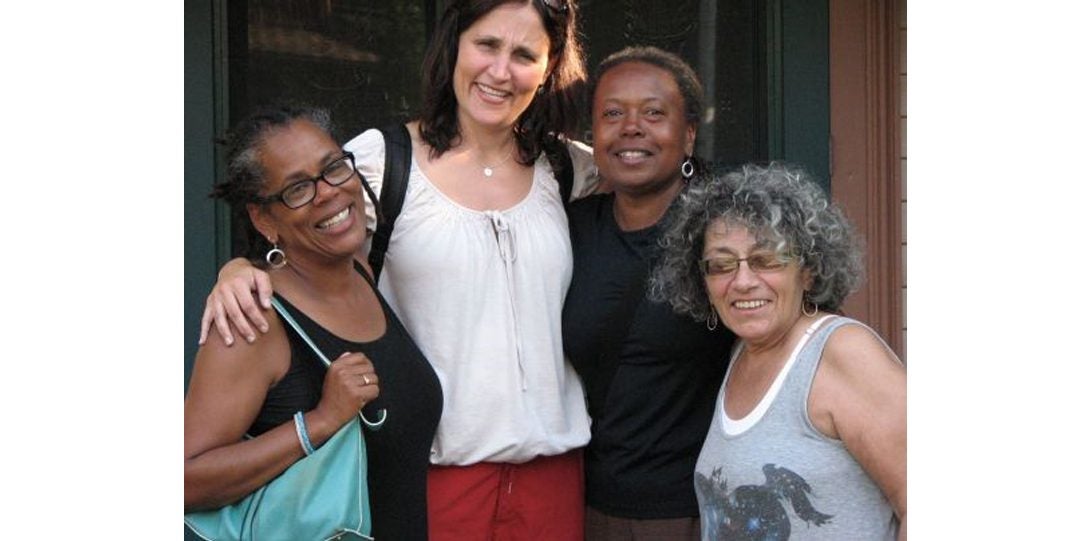
So you juggle a lot in your career…you work for the IRRPP, teach classes, just published a book. How would you describe the work you’re doing in your most recent book “Despite Best Intentions: How Racial Inequality Thrives in Good Schools”?
Lewis: Well nationally there is a lot of talk about racial achievement gaps, the fact that Black and Latino students aren’t doing as well as other groups. My co-author Johen Diamond and I are trying to shift the conversations about those gaps and about why they exist, and how we can close them and change things. We argue that how race works today is different than how it worked in the past. There are lots of important indicators that show big inequalities in health, wealth, education, unemployment between blacks and whites, Latinos and whites, Asian Americans…but the mechanisms that we think of as originally involved in creating those gaps or creating those inequalities don’t exist in the same way they once did so the question is, “why do the same patterns of inequality exist long after some of the formal mechanisms that created them have gone away.” Formal, legal segregation was the law of the land for much of our history but it was eliminated 60 years ago. However, within particular schools even when they’re desegregated they’re not fully integrated. For instance the school we studied was clearly segregated. There were high numbers of black and white students in the building but across classes there was a lot of segregation. That was true 40 years ago and that’s true today. The processes, practices, and mechanism that produced that pattern 40 years ago are not the same as they are today so our solutions have to be different.
Part Four of Interview Heading link
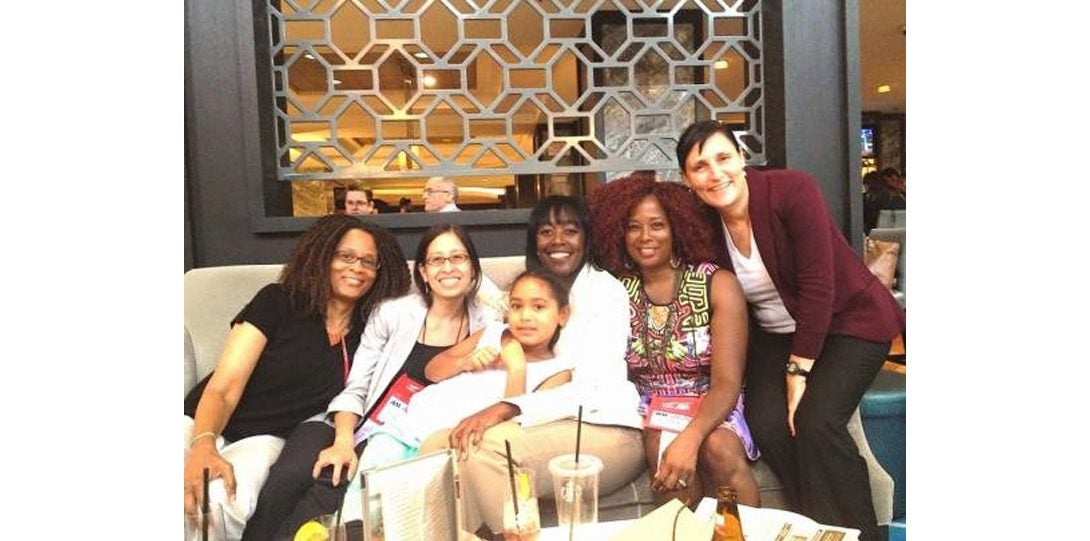
Obviously the book is about education, you work in education, you said you always wanted to become a teacher—growing up did you have really great or not-so-great teachers?
Lewis: I had some great teachers. There were four or five people I can think of that inspired me, even starting in elementary school. But also I come from a family of teachers; my father, aunts and uncles, grandparents, generations of people who valued education as a career path. Some people that I grew up with, when I said I wanted to be a teacher would say “oh, be more ambitious.” But in my family if you said you wanted to be a teacher, they’d say, “that’s great.” But I also think it was a little bit of that failure of imagination I talked about earlier. Teaching seemed to link up with my values, with what I wanted to do in the world. I liked kids, all those things.
So your parents were both educators?
Lewis: No, just my father. My mom was a copy editor. She was extremely detail-oriented in a way that I’m just not. She loves wordsmith-ing and all that stuff.
Was she surprised by your path?
Lewis: No, I don’t think so. I learned a lot from her. She’s copy-edited all my books, papers and articles over the years. That’s always been a nice thing to be able to share that.
Did you have any issues with her reading your writing?
Lewis: When I was younger. I think when you’re first really gaining a handle on language and communicating it’s tough to take editing well. When I was 12 or 13, it was the first time I had to write a long report, and I think crafting all those words is a challenge …and then she would come along and edit it and yeah it was really hard to have her move around the words I’d worked so hard to pull together in the first place.
I remember the report was about the Triangle Shirtwaist Factory fire in New York City. It was a cause and effect assigment, and it was about how the fire generated all kinds of new laws to protect workers.
You wrote a paper like that when you were 13? Did you go to a really good school?
Lewis: I did. I went to really good public urban schools in California before the state totally defunded public schooling. When I was little, California was one of the top states for schooling and then they passed a tax reform law that gutted the school system and means that California now ranks like 46th or 47th out of 50. But I did get a great education in San Francisco back then.
So beyond education, what do you do for fun? Are you open about this with your students?
Lewis: What I share probably varies a lot depending if it’s a graduate seminar or a class with 120 students. Well, I have an eight-year-old. A lot of what I do are things she enjoys. A lot of going to parks, a lot of exploring the city, dance parties at the house. I’m a huge reader, but after hours I don’t read sociology, I read fiction.
What’s the best you’ve read lately?
Lewis: I read The Nightingale, which was very moving. On the Move by Oliver Sacks. I also read mysteries.
What are you working on academically at the moment?
Lewis: I have a large project with my colleague, Maria Krysan. Along with a bunch of graduate students, we collected 145 interviews with parents in Chicago, in five neighborhoods and explored how they decided where to live and where to send their children to schools. What were the factors shaping their decisions?
I’m also working on a project with John Diamond that looks at districts that are trying to make some of the changes that we suggest in our book.
And I am flirting with the idea of writing a book that would be about how to talk to your kids about race.
Is it ever hard to describe the work that you do to your family, friends, and acquaintances?
Lewis: Yeah, it requires trying to make the familiar strange. When I say I’m interested in how racial dynamics shape everyday life, to me I can imagine all these levels at which racial dynamics are operating and their consequences, but to talk about it in a few minutes can be difficult. But I’ve gotten better with that as I’ve gotten older.
Part Five of Interview Heading link
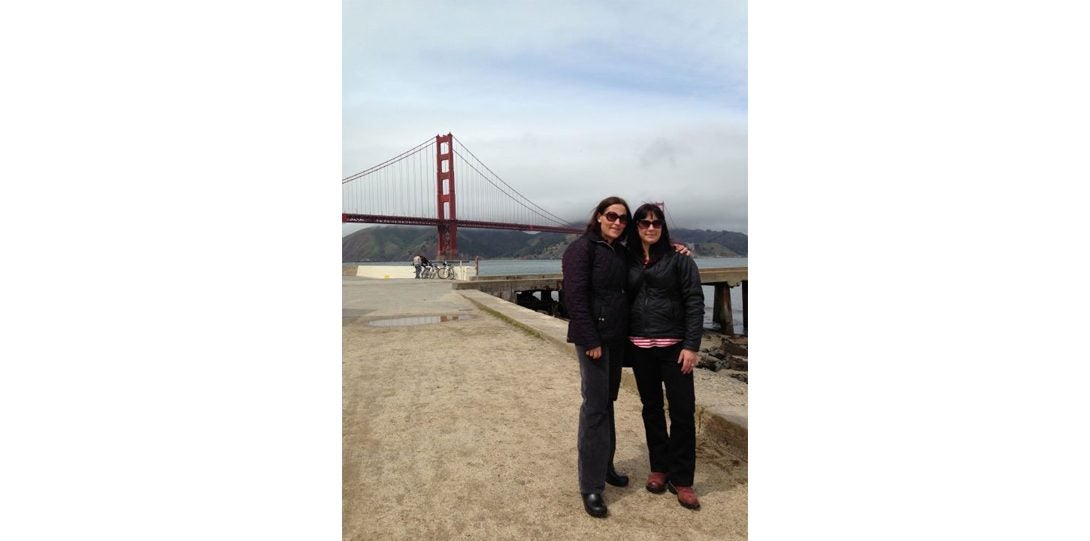
You did a lot of press for this book.
Lewis: Yes, I did. Some of those experiences I learned from. There was one where I went in thinking we were going to do a 30 minute interview, but it became clear too late that it was really two 7-minute segments with lots of commercials in-between and I didn’t adapt fast enough. The first segment was fine but I was.